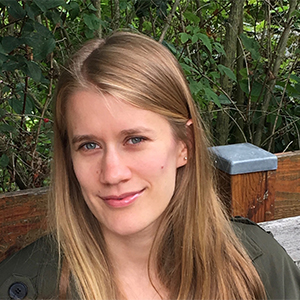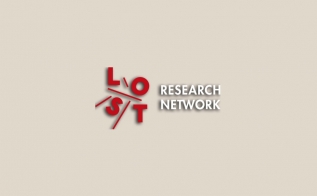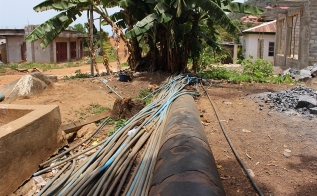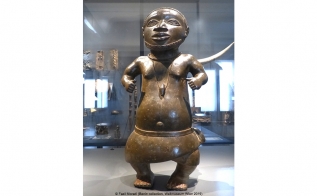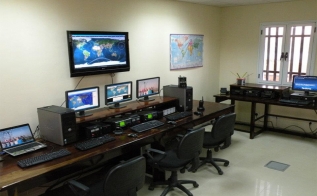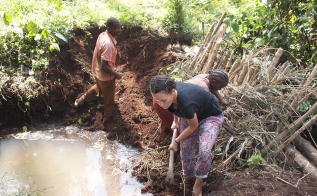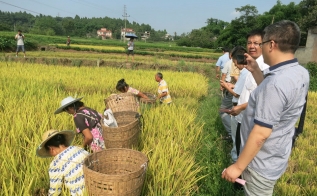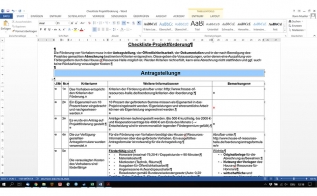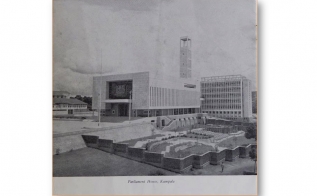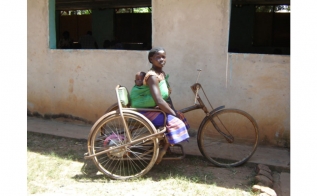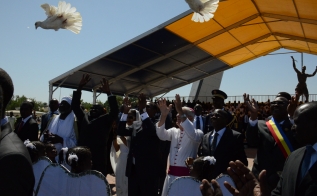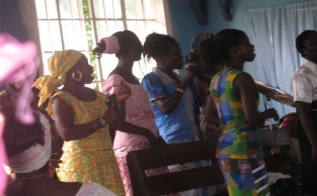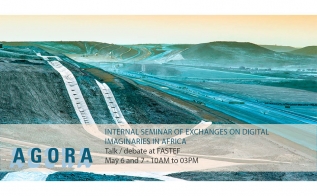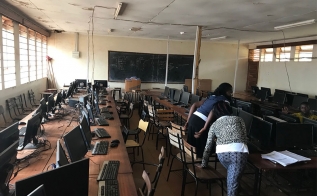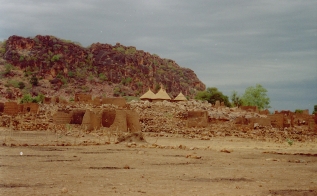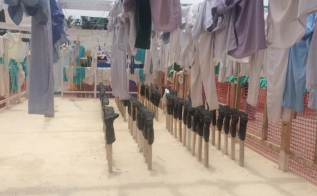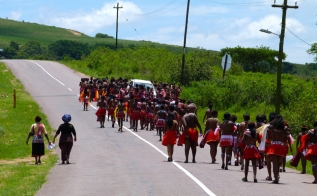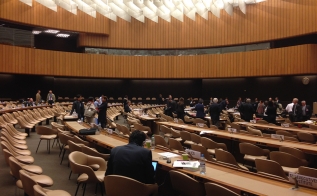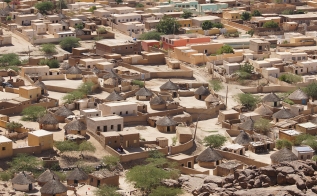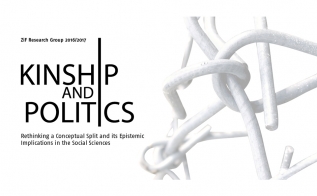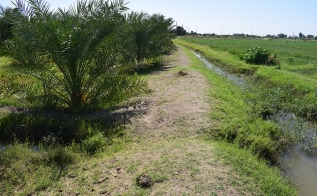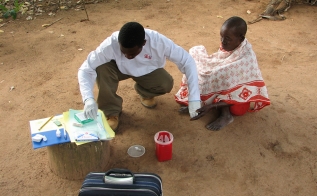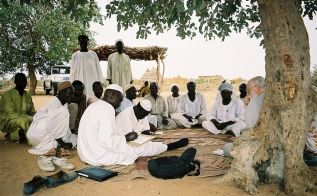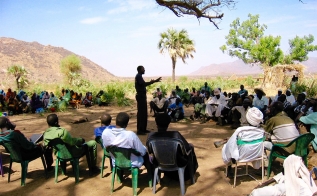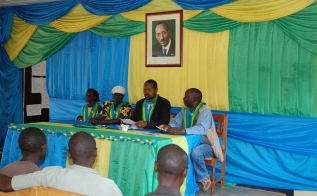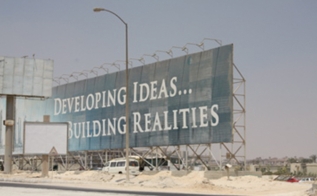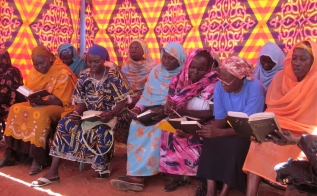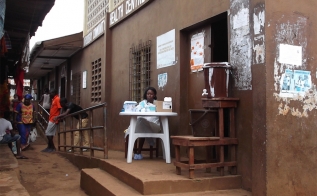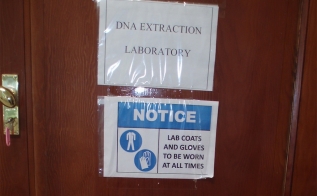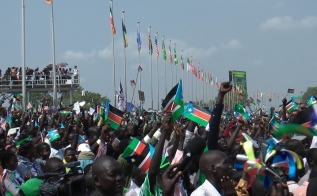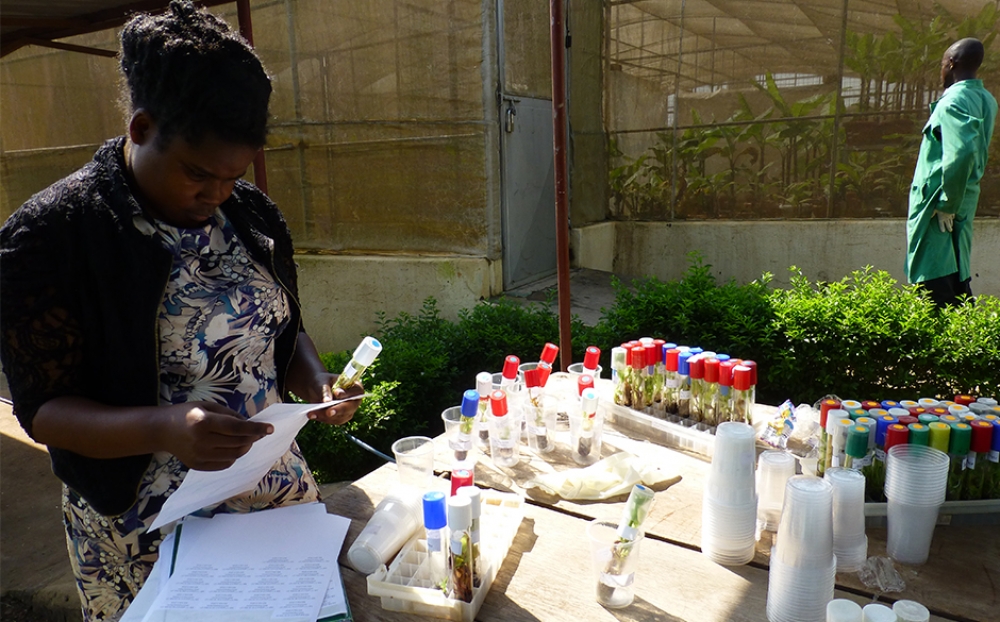
Description
This project contributes to the LOST program by exploring temporal, spatial and normative dimensions of evidence production with regard to micronutrient deficiencies as a recent problematization in public health nutrition. Solving world hunger is a political, socioeconomic and juridical dilemma. It concerns the relations between humans and their strained environments, and more specifically the promises and vulnerabilities of human-plant-relations in view of damages done by derailed capitalist systems of agricultural production. In the face of revived Malthusian dystopias and their urgent impetus to grow more and better food, this project focuses on biofortification, one recent high-tech agricultural solution for micronutrient deficiencies. I did archival and ethnographic research in Uganda and Australia since 2015 and spent most of my time at an agricultural research institute in Uganda, where scientists are developing a transgenic, micronutrient enriched banana variety in a multistakeholder collaboration. My work explores the future that this selection intervention in human-plant-relations anticipates and how testing practices of the laboratory and the field assemble assumptions about deficiency, experimental results and phenotypic observations to prove the banana’s safety and efficacy on human bodies. My works draws on science and technology studies, more-than-human anthropologies and medical anthropology to study how evidences and sensibilities of unequal human conditions are shaped, mobilized and come to matter in global health and agri-food research.
Key publication
Team members
Sandra Calkins
Assistant Professor at Free University of Berlin
Vaccine Inequity (completed project)
Uli Beisel, Richard RottenburgThis project interrogates how fair access can be built into the design of vaccines and critically...
Water contexts of Freetown (completed project)
Lorenz GoschThis project engages with the social life of water in Freetown, Sierra Leone.
The haunting of colonialism (completed project)
Fazil MoradiThis study examines the future inscribed into the restitution of artworks originating from the Ki...
Technoscapes in Africa (completed project)
Richard Rottenburg, Siri Lamoureaux, Alena ThielThis collaborative project examines the coproduction of technicisation and spatial orders across ...
Living in a forest landscape (Completed Project)
Laura MattThis project engaged with different readings of the Northern Sierra Leonean landscape by examinin...
Civil Drones in Africa (COMPLETED PROJECT)
René UmlaufBased on the increasing use of civil drones, this project examined new spatial formats that emerg...
Performing State Boundaries (Completed Project)
Christof LammerThis project investigated how boundaries between state, civil society and kinship are performed i...
MIGRANT ORGANIZATIONS IN HALLE (SAALE), GERMANY (COMPLETED PROJECT)
Ronn MüllerThe "House of Resources" project addressed the issue of immigration and integration by supporting...
Science at the Ugandan Parliament (Completed Project)
Kerry HoldenThis project explored evidence regimes in parliamentary deliberations in Uganda and asked how new...
Inscriptions of body prostheses (Completed Project)
Herbert MuyindaThis project examined the cultural, normative and political inscriptions of assistive devices for...
Secularism, Higher Education, and the State in Chad (completed project)
Remadji HoinathyThis project examined how secularism is negotiated in higher education institutions in Chad amids...
Religion and Trust in Biomedicine (Completed Project)
Sylvanus Spencer (1963-2021)This project investigated how religious beliefs and practices influenced trust in biomedical meas...
Digital Imaginaries (Completed Project)
Julien McHardy, Richard RottenburgThe project brought together artistic and scholarly contributions to reflect on how African imagi...
Curriculum Development (Completed Project)
Richard Rottenburg, René Umlauf, Herbert Muyinda, Keith BreckenridgeThe aim of this project was to publish five open access volumes of case studies that stimulate cu...
Conflict Resolution in Sudan (COMPLETED PROJECT)
Guma Kunda KomeyThis collaborative action-oriented research project between the Centre for Peace and Development ...
A World without AIDS (Completed Project)
Vinh-Kim NguyenThis project examined how the efficacy of pre-exposure prophylaxis for HIV in trials has been pro...
Ghana’s Biometric Population Register (Completed Project)
Alena ThielThe project dealt with e-ID programs and their negative sides, including the influence of the pri...
Concerning issues: Making things political in Durban (Completed Project)
Eva RiedkeEva's dissertation focused on 'issue' politics and processes of 'issue-ification' unfolding in Du...
The Emergence of Global Taxpayers (Completed Project)
Johanna MuglerThis project explored transnational legal and fiscal expert networks and the organisational envir...
Customary and International Law: Peacebuilding in the Sudan (Completed Project)
Philippe GoutThis project examined the impact of transnational legal pluralism in the context of international...
Kinship and Politics (Completed Project)
Tatjana Thelen, Christof LammerThis project critically questioned the inherited idea that modernity implies a decline of the pol...
DATE PALM PRODUCTION ALONG THE NILE IN NORTHERN SUDAN (Completed Project)
Enrico IlleThis project examined date production along the Nile River in northern Sudan as it has been shape...
Translating Global Health Technologies (Completed Project)
Richard Rottenburg, Uli Beisel, René Umlauf, Sung-Joon ParkThe project examined the introduction of new health technologies in Rwanda and Uganda and the cha...
Our Fellow Creatures (Completed Project)
Amy FieldThe research project addressed the impact of the constitutional protection of animals on regulato...
Oil and Social Change in Niger and Chad (Completed Project)
Andrea BehrendsThe project examined social transformations in the newly emerging African oil states of Niger and...
Adaptation and Creativity in Africa (Completed Project)
Richard Rottenburg, Andrea Behrends, René Umlauf, Uli Beisel, Ronn Müller, Sung-Joon Park, Siri Lamoureaux, Eva RiedkeThis research programme examined the ways in which technologies and significations are entwined a...
The Promise of Access to Justice in Rwanda (Completed Project)
Stefanie BognitzThis PhD project has analyzed contemporary re-makings of legal institutions in Rwanda and conside...
CRISIS IN THE EGYPTIAN HIGHER EDUCATION (Completed Project)
Daniele CantiniThis research project looked at the configurations of society, legitimacy, knowledge and power in...
Virtuous Language (Completed Project)
Siri LamoureauxSiri explored how identity and the gendered moral means of enacting it in semiotic practice are r...
Trust in Medicine After the EVD Epidemic (Completed Project)
Sung-Joon Park, Uli Beisel, Lorenz Gosch, Sylvanus Spencer (1963-2021), Susan EriksonDrawing on empirical evidence from the Ebola epidemic in Sierra Leone, Ghana, and Uganda, this pr...
Race/Trouble (Completed Project)
Katharina SchrammThis project inquired into race trouble and the reverberations of classificatory violence in cont...
The Local Making of a South Sudanese State (Completed Project)
Timm SureauWithout assuming a ready-made Western model, Timm examined the ongoing construction and reconstru...

